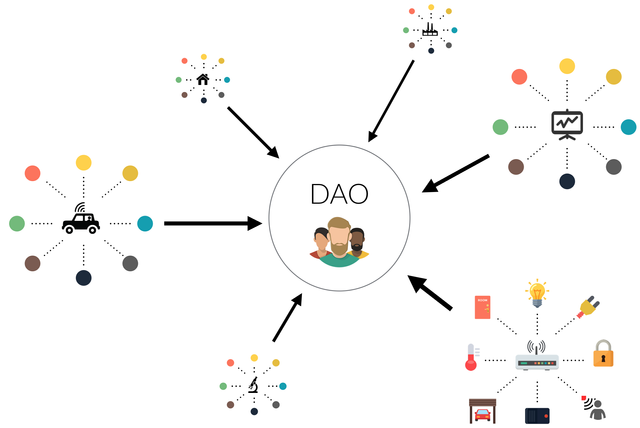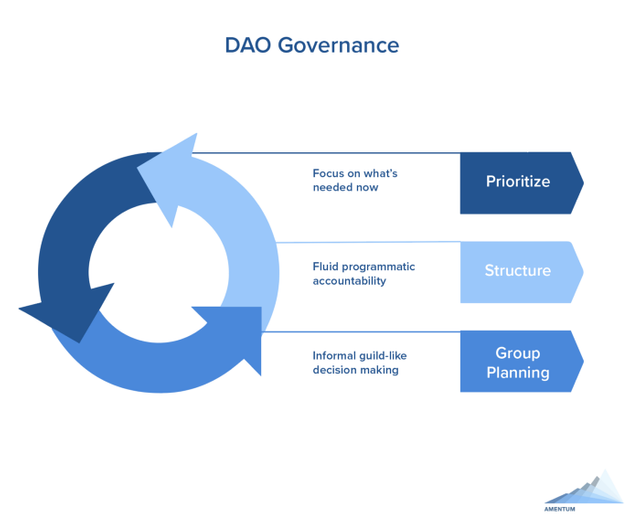Traditional Organizations VS. DAOs

What’s a DAO?
“DAO”, is a powerful three letter acronym that stands for, “Decentralized Autonomous Organization”.
A decentralized organization operates under the same basic concepts of a corporation but has a decentralized management structure—eliminating the board of directors.
Since the fall of The DAO in 2016, decentralized autonomous organizations have strayed from the spotlight. However, developments and experiments in this area never stopped. In 2020, support for DAOs has been gaining momentum, as illustrated by:
Availability of the three main systems for creating DAOs on mainnet: Aragon, DAOstack, Colony
New initiatives for governing crypto protocols with DAOs, following that of Maker: KyberDAO (Kyber Networks), PolkaDAO (Polkadot), dxDAO(Gnosis)
The creation of jurisdictions for DAOs, either as decentralized jurisdictions (Kleros, Aragon Court) or as traditional territory based ones offering legal vehicles for DAOs (Vermont, Malta, United Kingdom, etc.).
The DAO is an open source software,100 organized according to the rules set out in its code.101 It is owned by all those who purchased a token and operates by collective voting of these members.102 Rather than elect a chief executive officer or establish a board of directors, the DAO has set up a system of curators and contractors, which maintains and
alters its code

Traditional Organizations VS. DAOs
In traditional companies, all agents of a company have employment contracts that regulate their relationship with the organization and with each other. Their rights and obligations are regulated by legal contracts and enforced by a legal system which is subject to the underlying governing law of the country they reside in. If anything goes wrong, or someone does not stick to their end of the bargain, the legal contract will define who can be sued for what in a court of law.
DAOs, on the other hand, involve a set of people interacting with each other according to a self-enforcing open-source protocol. Keeping the network safe and performing other network tasks is rewarded with the native network tokens. Blockchains and smart contracts hereby reduce transaction costs of management at higher levels of transparency, aligning the interests of all stakeholders by the consensus rules tied to the native token. Individual behaviour is incentivized with a token to collectively contribute to a common goal. Members of a DAO are not bound together by a legal entity, nor have they entered into any formal legal contracts.21 Instead, they are steered by incentives tied to the network tokens, and fully transparent rules that are written into the piece of so ware, which is enforced by machine consensus. There are no bilateral agreements. There is only one governing law – the protocol or smart contract – regulating the behaviour of all network participants.
Members of a DAO are not tied by any formal contract. They are rather bound together by a common goal and network incentives tied to the consensus rules. These rules are completely transparent and written in the open-source software that governs the organization. Since DAOs operate without borders, they might be subject to different legal jurisdictions.
As opposed to traditional companies that are structured in a top-down manner, with many layers of management and bureaucratic coordination, DAOs provide an operating system for people and institutions that do not know nor trust each other, who might live in different geographical areas, speak different languages, and therefore be subject to different jurisdictions. Instead of legal contracts managing the relations of the people, in the Bitcoin Network, all agreements are in the form of open-source code that is self-enforced by majority consensus of all network actors. DAOs do not have a hierarchical structure, except for the code. Once deployed, this entity is independent of its creator and cannot be censored by one single entity, but instead by a predefined majority of the organization’s participants. The exact majority rules are defined in the consensus protocol or the smart contract, and will vary from use case to use case. In some countries, like Austria for example, there are trends in the legal literature to see DAOs as a civil law partnership.